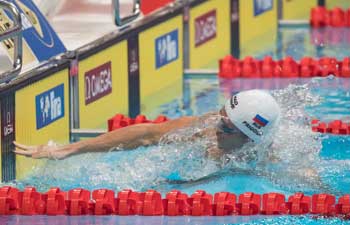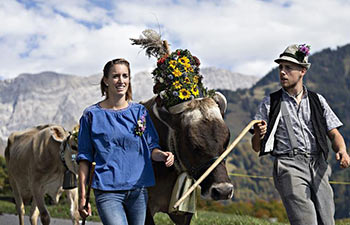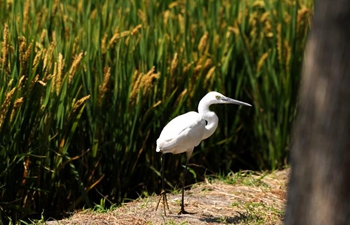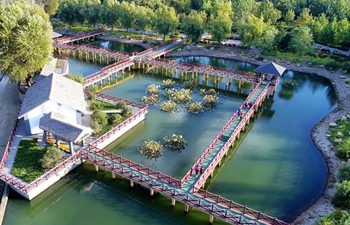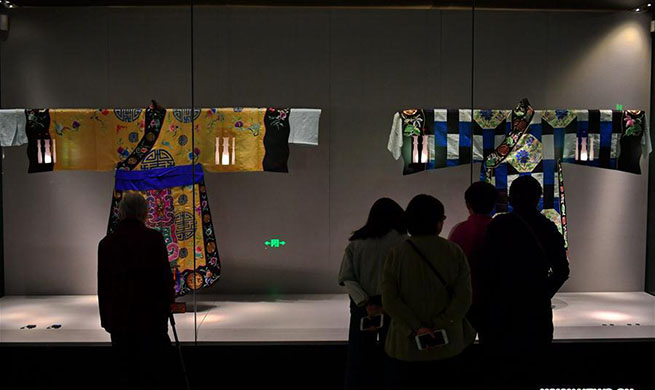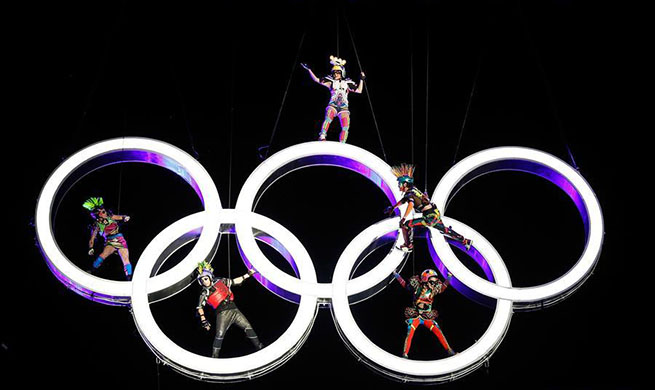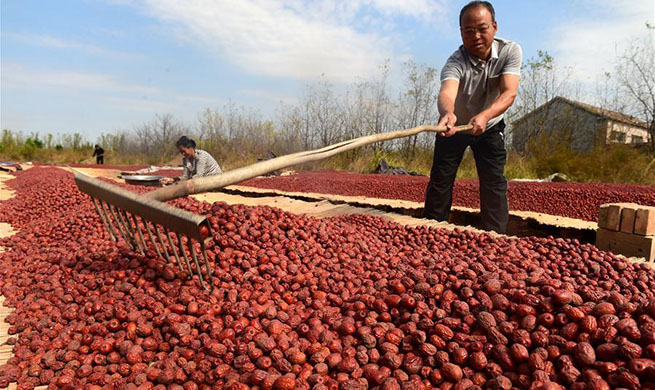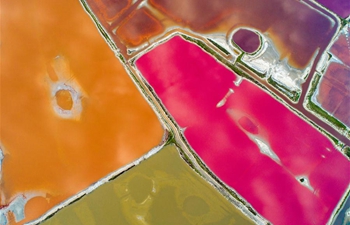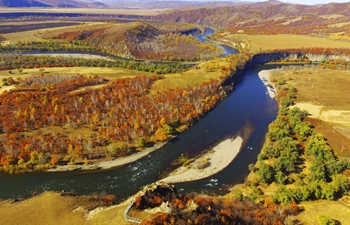By Nathan Morley
BERLIN, Oct. 7 (Xinhua) -- An urban development project is seeking to transform a section of an old shipping canal at the heart of Berlin into a natural swimming pool.
The non-profit "Flussbad Berlin Association" is undertaking the project on a 1.8-kilometer stretch of the canal to make it an accessible body of water for the general public to use in new and exciting ways.
"The project is divided into three basic sections, namely an ecological resting space for flora and fauna, an extensive natural plant filter and an 840-meter natural swimming area," Jan Edler, the creator of the project told Xinhua.
The plan has already prompted an increase in the levels of awareness people have as to how important it is to foster the ecological, sustainable and equitable development of growing cities. The pool area will be located at the Spree channel between Schlossplatz and the Bode Museum.
Edler says that back in 1998, many critics sneered at the initial Flussbad idea and dismissed it as a utopian fantasy. But now the project is moving forward and since 2016 the Flussbad is anchored as an urban redevelopment aim in the city.
"The Flussbad will give Berliners the opportunity to enjoy a prominent slice of the inner-city Spree, which has been too polluted for recreational swimming for a good part of the last century."
The project divides the Spree Canal into three sections, each with its own particular usage, atmosphere and function. One will be redesigned as an ecological regeneration area for flora and fauna.
"Another section Flussbad situated between Gertraudenbrucke and the existing weir at the Foreign Office will serve to clean the Spree in an effective and ecological way by means of a plant filter," Elder says. "Our proposed filter would continuously clean the water to ensure bathing water quality all year around," he adds.
As it stands, Edler says the water in the Spree River is comparatively clean. However, it suffers significantly from discharges pumped into the river by the combined sewer system after heavy rainfalls.
Currently, a prototypical scaled version of the filter is in operation in order to verify the results in practice and to collect more data for the planning of the final filtration system.
"In the final section of the Flussbad, which lies between the Foreign Office and the Bode Museum, an 840-meter stretch of naturally filtered water will be made available to the public; in other words, they would provide a space for people to relax next to the water, to swim some serious laps or just dip in to cool off on a hot summer's day."
The Flussbad initiators have set their sights on completing the project by 2025. If the project is finished by then, it would mark exactly 100 years after the last inner-city bathing area in Berlin had to be closed due to poor water quality.
Edler says the Flussbad Berlin already started having an effect long before it began being implemented far beyond Germany's borders.
"It is being seen as a role model and a ray of hope for other work being done on the innovative, modern and sustainable development of our cities. In fact, the Flussbad has long since moved beyond a concrete social utopia to become an inspiring engine behind similar initiatives."
Despite the progress, Edler says there are still significant obstacles to face, such as questions of ownership, exclusive usage rights and the development of legal frameworks that permit the safe operation of the Flussbad in the middle of the city.
"We have to secure financing for the construction, operation and all the related sponsorship issues. And, of course, there are a number of planning aspects that will have to be clarified at a later stage".
"The time is ripe to realize the project! That is what is next," Edler adds.





